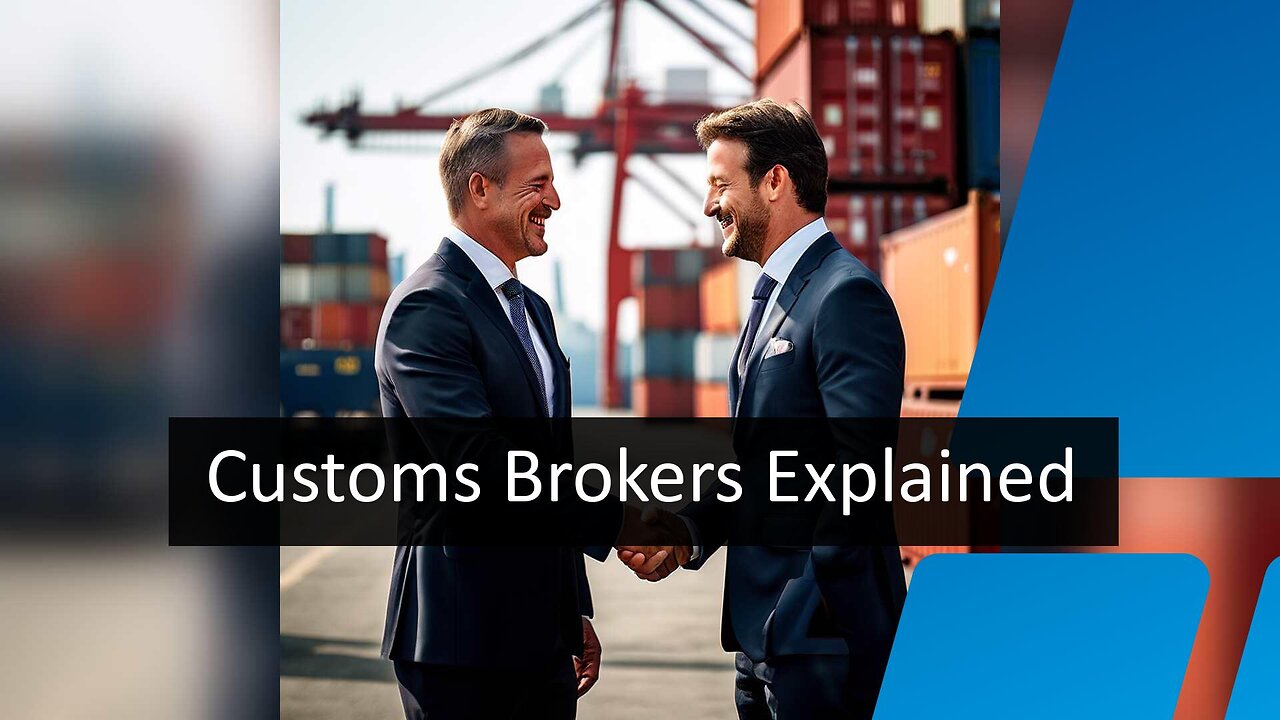Premium Only Content

Mastering Customs Compliance Auditing: The Essential Role of a Customs Broker
ISF Solution | (832-904-9333)
clearance@isfsolution.com | www.isfsolution.com
In today's video, we discussed the important role of a customs broker in customs compliance auditing. A customs broker is a licensed professional who acts as an intermediary between importers and Customs authorities, with in-depth knowledge of customs regulations, documentation requirements, and trade laws. Their main responsibility is to facilitate the smooth movement of goods across borders while ensuring compliance with all legal obligations.
One of the primary roles of a customs broker is customs compliance auditing. Compliance auditing involves conducting thorough reviews of import transactions and ensuring that all necessary documentation and procedures comply with customs regulations. This process helps to identify and rectify any errors or potential compliance issues before the goods are imported.
Customs compliance audits are conducted to minimize the risk of penalties, fines, and delays in customs clearance. They help importers avoid costly mistakes and ensure smooth import operations. Customs brokers work closely with importers to collect and review all necessary documentation, such as commercial invoices, packing lists, bills of lading, and customs bonds.
During the compliance audit, the customs broker meticulously analyzes the import documents to ensure accuracy and completeness. They verify if the declared classification, valuation, country of origin, and other critical elements are in compliance with the applicable customs laws and regulations. Any discrepancies or potential issues are addressed promptly for correction.
Customs compliance auditing not only benefits importers but also helps Customs authorities enforce trade regulations and protect national security. By ensuring accuracy and adherence to customs regulations, customs brokers play a vital role in maintaining the integrity of the international trade system.
In today's digital age, customs brokers leverage sophisticated software and technology to streamline the customs compliance auditing process. These tools automate routine tasks, ensure consistency in audits, and provide real-time updates on regulatory changes. This enables customs brokers to efficiently manage large volumes of import transactions while staying up-to-date with the complex customs environment.
Aside from conducting compliance audits, customs brokers also provide valuable advice and consultation to importers. They assist in navigating the complexities of customs regulations, tariff classifications, and free trade agreements. Their expertise and experience can save importers valuable time and resources, while ensuring compliance and minimizing risks.
Moreover, customs brokers often offer training programs to importers, keeping them informed about the latest customs regulations, documentation requirements, and best practices. This knowledge empowers importers to make informed decisions, enhance their own compliance processes, and avoid costly mistakes.
In summary, customs brokers play a pivotal role in customs compliance auditing. They assist importers in adhering to customs regulations, conducting thorough audits, and ensuring that all necessary documentation is complete and accurate. By partnering with a professional customs broker, importers can navigate the complex world of international trade with confidence and peace of mind.
#usimportbond #isfcustomsbroker #uscustomsclearing #isfentry
Video Disclaimer Here: For educational purposes - No affiliation with US government sectors.
00:10 - Customs brokers play a crucial role in customs compliance auditing by ensuring imported goods meet all necessary regulations and requirements.
00:27 - They act as intermediaries between importers and Customs authorities, with in-depth knowledge of customs regulations, documentation requirements, and trade laws.
01:11 - Customs brokers conduct compliance audits to identify and rectify any errors or potential compliance issues before goods are imported, minimizing the risk of penalties and delays.
02:44 - They also provide valuable advice, consultation, and training programs to help importers navigate customs regulations, enhance compliance processes, and avoid costly mistakes.
-
 5:42:36
5:42:36
FreshandFit
23 hours agoLive X Censorship For Opposing Immigration?!
233K109 -
 1:08:16
1:08:16
Tactical Advisor
19 hours agoNEW Budget Glocks | Vault Room Live Stream 011
120K9 -
 16:30
16:30
SNEAKO
1 day agoNO FRIENDS IN THE INDUSTRY.
156K71 -
 6:19
6:19
BlackDiamondGunsandGear
1 day agoHow Fat Guys can Appendix Carry
109K10 -
 6:58
6:58
Gun Owners Of America
1 day ago2024 Was Huge For Gun Rights, Here's Our Top 10 Wins!
87.8K4 -
 15:50
15:50
Degenerate Jay
1 day ago $3.22 earnedJames Bond Is Being Ruined By Amazon? Make Him A Black Gay Woman?
67.2K15 -
 15:18
15:18
DeVory Darkins
1 day ago $27.00 earnedTrump Drops NIGHTMARE Warning on Joe Biden
81.9K118 -
 36:13
36:13
The Why Files
1 month agoAlien Implants Vol. 1: Devil’s Den UFO Encounter: What Was Found Inside Terry Lovelace?
98K44 -
 9:03
9:03
Alabama Arsenal
2 days ago $1.28 earnedAAC HUB 2K | Modern Features, Iconic Classic Looks
29.1K1 -
 13:49
13:49
Dermatologist Dr. Dustin Portela
2 days ago $2.44 earnedDermatologist Reveals the Worst Things To Do To Your Skin
21.6K14